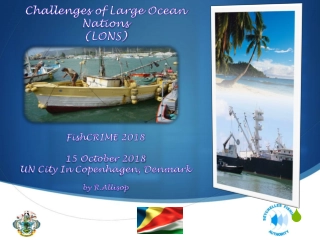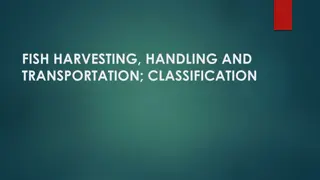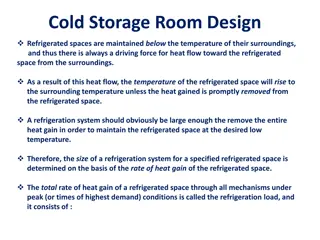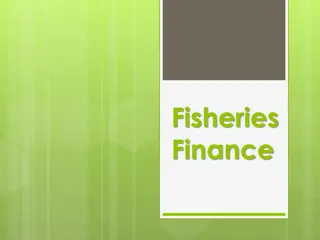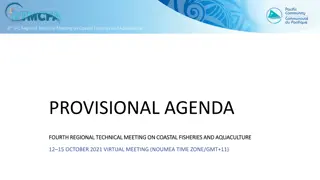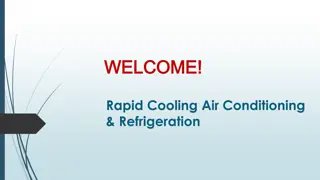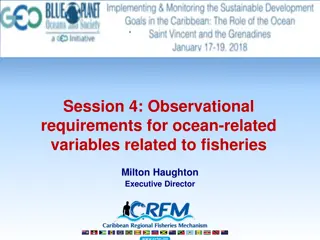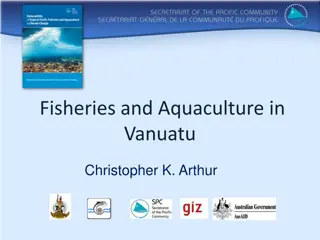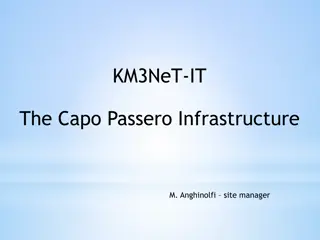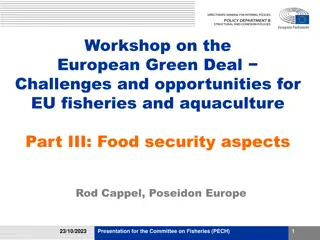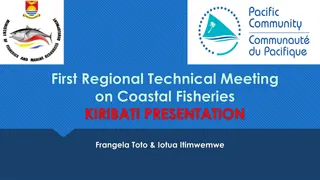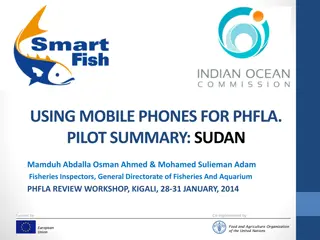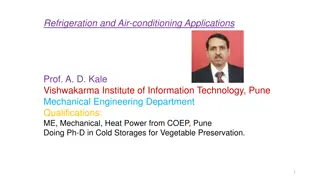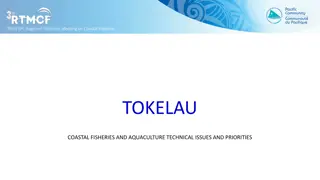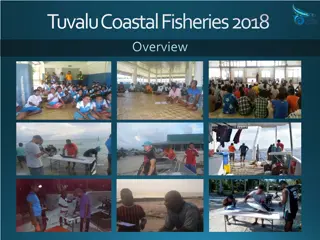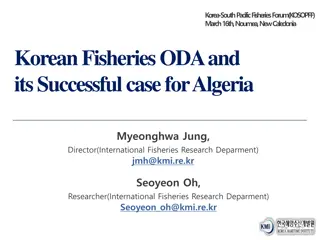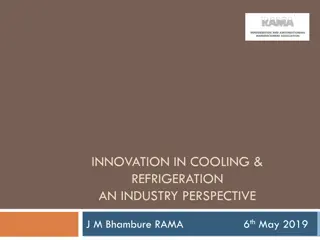Challenges in Off-Shore Fisheries and Refrigeration Solutions
Understanding the challenges faced by off-shore fisheries in the global scale, particularly in the Pacific economies, and the need for effective refrigeration solutions. Issues such as HCFC phase-out, freezer types on fishing vessels, and the impact on GDP are explored. Governance agreements, compliance with regulations, and capacity building initiatives are essential for sustainable marine sectors.
Download Presentation

Please find below an Image/Link to download the presentation.
The content on the website is provided AS IS for your information and personal use only. It may not be sold, licensed, or shared on other websites without obtaining consent from the author. Download presentation by click this link. If you encounter any issues during the download, it is possible that the publisher has removed the file from their server.
E N D
Presentation Transcript
Refrigeration Challenges in the Off- Shore Fisheries Sectors Jeffrey Abraham Yamada National Ozone Officer March 4, 2021
Fisheries on the global scale Fisheries in the Pacific Economy Overview of the Fisheries sector in FSM Marine Sector Challenges for HCFC phase-out Freezer Types on-board fishing vessels What does it all mean? Outline
Fisheries on the Global Scale
Global Distribution of Motorized Fishing Vessels (2016) In Thousands ( 000)
Fisheries in the Pacific Economies
Fishing Access Fees for PIC region and contribution to GDP
FSMs Flagged Vessels Total Catch for all Species Source: WCFPC 2017 Tuna Catch Yearbook
Contribution to Gross Domestic Product Source: PITI-VITI Economic Review for Fiscal Year 2017
Governing regional and international agreement, Regional Fisheries, MARPOL (IMO), UNLOS and MP Compliance etc. 1. Flag State vs Ship Owner vs Chartered fishing vessels Marine Marine Sector Sector Challenges Challenges for HCFC for HCFC phase phase- -out 2. Monitoring and Reporting of ODS (and non-ODS) use in Off-shore and On-Shore Marine Sectors Legal Interpretation of Consumption in Marine Sectors, & Data Reporting. out 3. Service Sector Practices and Capacity Building Off- Shore and On - Shore Multiple nationalities, who qualifies to be trained, How can the Multilateral Fund (MLF) rules be applied ?
4. Technologies for upgrade of Ships Who pays for upgrades is legally responsible? 5. Reefer Containers The Low Hanging Fruit- Possible for HFC Phase- down Continued 6. Implications of Kigali Amendment Fleets with refrigerated systems (built in) would need to move to low GWP. (need to address old vessels and NOU providing advise to decision makers on procurement processes for new vessels)
Global Conventions relating to Fisheries 1973 International Convention for the Prevention of Marine Pollution from Ships, modified by the 1978 Protocol (MARPOL 73/78) and the 1982 United Nations Convention on the Law of the Seas (UNCLOS). 1958 High Seas Convention (HSC) Flag State duties and responsibilities Under the 1982 Convention, the flag State is responsible for the vessel s compliance with international laws. Article 217 of UNCLOS makes the flag State primarily responsible for preventing vessel source pollution. The Montreal Protocol has no specific and separate decisions on the management and reporting of ODS for Flag States
Freezer types onboard Fishing Vessels Types that use R-22, R-717 The UNEP Montreal Protocol Technical and Economic Assessment Panel (TEAP) reported in October 2014 that almost 80% of fishing fleets all over the world uses HCFC-22
The need to develop a plan that address each PIC country s fisheries A management approach to deal with the levels of HCFCs consumption onboard fishing vessels Common understanding between the PIC and the world that the both the onshore and offshore fisheries sector is our economic lifeline What does this all mean? Associated costs with upgrading refrigeration units for fishing vessels are undoubtedly very costly. Incentives for fisheries to switch, since environmental stewardship alone on part of companies may not be enough


